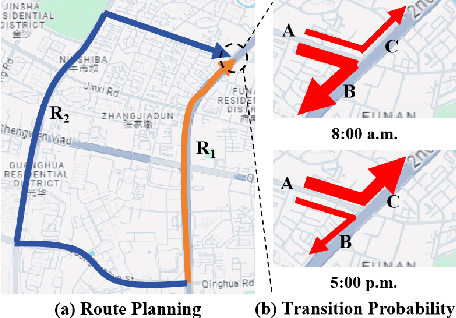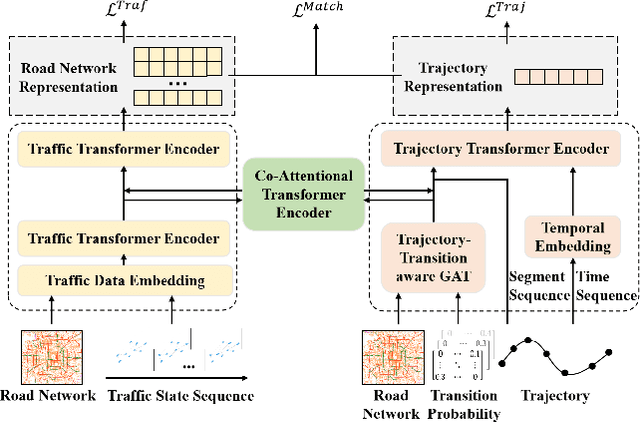Bridging Traffic State and Trajectory for Dynamic Road Network and Trajectory Representation Learning
Paper and Code
Feb 08, 2025



Effective urban traffic management is vital for sustainable city development, relying on intelligent systems with machine learning tasks such as traffic flow prediction and travel time estimation. Traditional approaches usually focus on static road network and trajectory representation learning, and overlook the dynamic nature of traffic states and trajectories, which is crucial for downstream tasks. To address this gap, we propose TRACK, a novel framework to bridge traffic state and trajectory data for dynamic road network and trajectory representation learning. TRACK leverages graph attention networks (GAT) to encode static and spatial road segment features, and introduces a transformer-based model for trajectory representation learning. By incorporating transition probabilities from trajectory data into GAT attention weights, TRACK captures dynamic spatial features of road segments. Meanwhile, TRACK designs a traffic transformer encoder to capture the spatial-temporal dynamics of road segments from traffic state data. To further enhance dynamic representations, TRACK proposes a co-attentional transformer encoder and a trajectory-traffic state matching task. Extensive experiments on real-life urban traffic datasets demonstrate the superiority of TRACK over state-of-the-art baselines. Case studies confirm TRACK's ability to capture spatial-temporal dynamics effectively.
 Add to Chrome
Add to Chrome Add to Firefox
Add to Firefox Add to Edge
Add to Edge